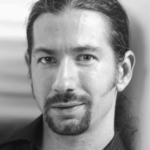
P4 Developer Days – P4Muse (P4 Modularity and Unification for Seamless Extensibility)
Register to attend this P4 Developer Days webinar, “P4Muse (P4 Modularity and Unification for Seamless Extensibility”
Date: March 4, 2026
Time: 8:00am Pacific
Abstract
Domain-specific programming languages such as P4 enable flexible and high-performance packet processing in programmable network data planes. However, most P4 programs remain monolithic, limiting the development of modular and reusable protocols and libraries. Introducing modularity to P4 has been challenging because existing approaches—such as trans-compilers and virtualization—operate outside the P4 language and compiler, reducing backward compatibility and extensibility. P4Muse (P4 Modularity and Unification for Seamless Extensibility) addresses this challenge by introducing a compiler-managed approach to modularity within the P4C compiler. Without requiring any new syntax or annotations, P4Muse introduces new compiler passes for automatic code merging, enabling modular design, reuse, and seamless integration of complex network functionalities. Our results show that P4Muse effectively supports modular P4 program development without altering existing P4 syntax, providing a robust solution that significantly improves code reusability, flexibility, and extensibility while maintaining backward compatibility.
Speakers
 Mohsen Rahmati is a Ph.D. candidate in Computer Engineering at Polytechnique Montréal, supervised by Professors Yvon Savaria, François-Raymond Boyer, and Jean-Pierre David. His research focuses on compiler design for programmable networks, emphasizing modularity and reusability in the P4 language. He is the creator of P4Muse, a compiler-managed modularity framework (accepted in IEEE Access, 2025), and P4O2, an object-oriented-inspired modularity in P4 currently under review at IEEE Access.
Mohsen Rahmati is a Ph.D. candidate in Computer Engineering at Polytechnique Montréal, supervised by Professors Yvon Savaria, François-Raymond Boyer, and Jean-Pierre David. His research focuses on compiler design for programmable networks, emphasizing modularity and reusability in the P4 language. He is the creator of P4Muse, a compiler-managed modularity framework (accepted in IEEE Access, 2025), and P4O2, an object-oriented-inspired modularity in P4 currently under review at IEEE Access.
 François-Raymond Boyer received B.Sc. and Ph.D. degrees in computer science from Université de Montréal, Montreal, QC, Canada, in 1996 and 2001, respectively. Since 2001, he has been with Polytechnique Montréal, Montréal, where he is currently a Professor with the Department of Computer and Software Engineering. He has authored or co-authored more than 30 conference and journal papers. His current research interests include microelectronics, performance optimization, parallelizing compilers, digital audio, and body motion capture. He is a member of Regroupement Stratégique en Microélectronique du Québec, Groupe de Recherche en Microélectronique et Microsystèmes, and Observatoire Interdisciplinaire de Création et de Recherche en Musique.
François-Raymond Boyer received B.Sc. and Ph.D. degrees in computer science from Université de Montréal, Montreal, QC, Canada, in 1996 and 2001, respectively. Since 2001, he has been with Polytechnique Montréal, Montréal, where he is currently a Professor with the Department of Computer and Software Engineering. He has authored or co-authored more than 30 conference and journal papers. His current research interests include microelectronics, performance optimization, parallelizing compilers, digital audio, and body motion capture. He is a member of Regroupement Stratégique en Microélectronique du Québec, Groupe de Recherche en Microélectronique et Microsystèmes, and Observatoire Interdisciplinaire de Création et de Recherche en Musique.

